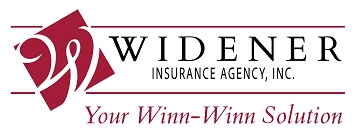Vehicles often form the backbone of many businesses—whether for delivering supplies, transporting equipment, or servicing clients. Given the uncertainties of weather, economic pressures, and operational risks, having the right commercial auto insurance isn’t just wise—it’s essential for protecting your business, your team, and your financial foundation.
Legal Requirements & Core Coverage
Most jurisdictions mandate minimum liability coverage for commercial vehicles to cover medical and property damage costs in the event of an accident. While these requirements offer basic protection, businesses—especially those operating heavier or federally regulated vehicles—may find it wise to opt for higher coverage limits.
Protection Beyond Liability
Beyond meeting legal standards, comprehensive protection often includes:
- Physical damage coverage (collision & comprehensive): Shields your vehicles from accidents, theft, vandalism, and weather-related damages.
- Supplemental enhancements: Add-ons such as uninsured/underinsured motorist coverage, medical payment coverage for drivers and passengers, rental reimbursement, towing and labor coverage, and protection for hired or non-owned vehicles.
Premium Cost Drivers
Key factors that impact insurance costs include:
- Driver risk profile: Safety records, training programs, and internal risk-management processes.
- Business operations: Routes, mileage, cargo type and value, and past claims history.
- Local conditions: Climate, road patterns, and regional accident exposure.
Estimated Costs
Here’s a general ballpark for annual commercial auto insurance (per vehicle):
- Small operations: Approximately $800–$1,500
- Larger fleets: Around $10,000–$20,000
Smart Cost Management Strategies
- Bundle policies: Combining your auto, property, and general liability insurance often unlocks discounts.
- Increase deductibles: A higher deductible can reduce premiums if your business can manage a larger out-of-pocket expense.
- Leverage technology: Telematics, GPS tracking, and driver monitoring systems can reduce risk and lower premiums.
- Explore group or association plans: Pooled or grouped insurance options may offer improved rates for small businesses.
Commercial auto insurance is more than a regulatory check–it’s a key strategic tool. Tailoring the right coverage not only ensures legal compliance but also protects your vehicles, liability exposure, and bottom line. By investing time in choosing the right policy, exploring savings opportunities, and embracing proactive fleet protections, your insurance becomes a strategic asset rather than just an expense. Secure the right plan today and drive your business forward with confidence.

